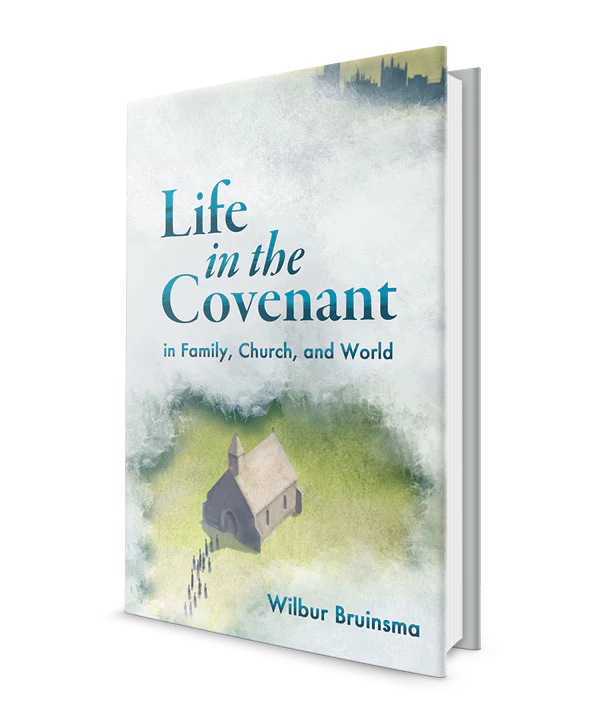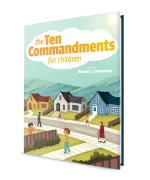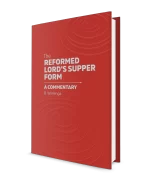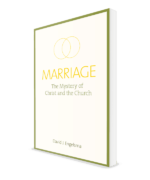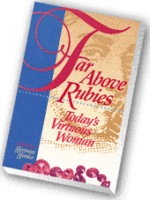God said to Abraham, “I will establish my covenant between me and thee and thy seed after thee in their generations for an everlasting covenant, to be a God unto thee, and to thy seed after thee” (Gen. 17:7; cf. Lev. 26:12; Jer. 30:22; Eze. 37:27). This covenant is the intimate relationship of fellowship He has chosen to share with His people in Jesus Christ. God has blessed His Old and New Testament church by way of the truth of the covenant, even as He blessed father Abraham. The truth of the covenant comforts us in distress, encourages us in our battle against our enemies and gives strength when we are weak. As believers, we must embrace the truth of God’s covenant by developing and nurturing a worldview that is rooted in the blessed relationship which our heavenly Father has made with us in Christ.
With the heart of a pastor and the passion of a preacher, the author has written this book to help believers combat the threatening influences of both the world and our own sin upon the Christian home and church. As a practical exposition of the doctrine of God’s covenant, this volume will aid children of the covenant in directing their lives unto the Triune God—in the family, among other saints and as they live in the midst of an unbelieving world.
_____________________
Wilbur Bruinsma is a minister in the Protestant Reformed Churches. He has pastored four congregations, and he has also served as a domestic missionary in the United States and as a missionary to Jamaica. Rev. Bruinsma and his wife have been blessed with five children and many grandchildren.
REVIEW
The following review was written by seminarian Arend Haveman on Life in the Covenant: In Family, Church, and World by Wilbur Bruinsma (Jenison, MI: Reformed Free Publishing, 2023).
Life in the Covenant is the believer’s guide to a proper worldview as member of God’s covenant. “God’s covenant is that intimate relationship of love and fellowship God has chosen to share with his elect people in Christ (3).” “This relationship of God’s covenant will live in our hearts, determining how we live in the home, the church, and the wicked world around us (7).” This is especially important as the world approaches the last days.
This purpose is set forth clearly in the introduction. “We live in the last days. The signs heralding Christ’s second coming emerge more clearly as the time approaches (1).” As evils increase the question of how we are to live also rises within the hearts of the people of God. Life in the Covenant answers that question. “God’s covenant directs believers in the way we conduct our personal lives in the home and family, as well as our place together with God’s saints in the church as a whole. That is the focus of this book (9).”
Rev. Bruinsma set his treatment of the covenantal worldview of the child of God on the right path by dealing first with the family. The family is at the foundation of society. If the family unit is destroyed, so also society will be destroyed. And the family is just as essential to our life in the covenant. “The family unit is an expression of who God is. It is an expression of the life of covenant that is inherent in God himself! (15)” And God chose his covenant people to bring them into his covenant family life (16). This shaped the definition given of a family. “The family is made up of a husband and his wife who remain faithful to one another in marriage and, in their bond of love and fellowship, bring forth children in the fear of the Lord (18).” The families of believers are to be reflections of the covenantal family life of God.
From this starting point, Bruinsma unfolds how the family must be ordered in light of the covenant. Marriage is a covenant bond and must be entered into with that serious mindset. Children given in the marriage are covenant children and must be raised as such. Covenant blessings then are enjoyed most intimately in that covenant home.
The large section and clear focus on covenantal life in the family is a testimony to the practical nature of this book. It is not an abstract or dry thesis on cold doctrinal truth. The doctrine of the covenant is of the utmost practical importance to the Reformed believer and Life in the Covenant gets at that. The covenant and especially the family are at the very heart of the Christian life. Everyone is born into a family. The first relationships we all have are within the family. Normally we learn how to worship God not first by going to church but by family worship (65- 66). The family in which we are born shapes us more than anything and therefore it is so important that God’s covenant shape our families. And it is no surprise, as this book makes clear, that the Devil attacks families more than ever. And in the world, he has been very successful. Life in the Covenant exposes his attacks and draws our attention to their seriousness.
The practical nature is not limited to the family though. Worship in the church may seem to be a rather abstract thing. But worshipping God and worshipping God rightly is of the utmost practical importance. Life in the Covenant ties the truth of the covenant to public, communal worship. God “saves his people in order to share in his most blessed fellowship with them. There is no better place on earth to be found than where God’s children sit beneath the feet of their Father in his house, worshipping him together! As a result of their salvation, believers crave to be in church worshipping God (111).” Why do the members of the church love to worship, many even twice on the Lord’s Day? “So much it is the desire of the believer to enter into fellowship with God that when they are called by the church to worship, they do not balk at the opportunity to do so… we desire to enter into fellowship with God in his house as much as possible when given the opportunity (112).” The covenant, God’s fellowshipping with his people, stands behind the importance of worship.
Life in the Covenant also is profitable in that it recognizes the believer is yet in the world even if he or she is not of the world. It does justice to the reality in which Reformed believers find themselves. The covenantal worldview of the Reformed believer is not that of world flight. Instead he or she must live and act in this world every day, even alongside the wicked men and women of the world. The covenantal calling then for those who are in God’s covenant is that they must live antithetically in the world. The antithesis is a major theme that must not be ignored, and Bruinsma did not ignore it. Chapter 15 is entitled “Living Antithetically.” But the antithesis is developed throughout. The Christian family is antithetical to the family concept of the world. Frequenting God’s house on the Lord’s Day distinguishes a believer from the world (chapter 10). Not being of the world (chapter 12) is living the antithesis.
As the world descends deeper and deeper into sin and lawlessness, we Christians must continue to “reexamine our values (2).” Life in the Covenant is a helpful guide. For those who know the truth, who enjoy life in God’s covenant, this book causes you to stand back and marvel at this gift of grace. And it encourages you to faithfully resolve to live as you are called by your covenant God in the family, church, and world.

